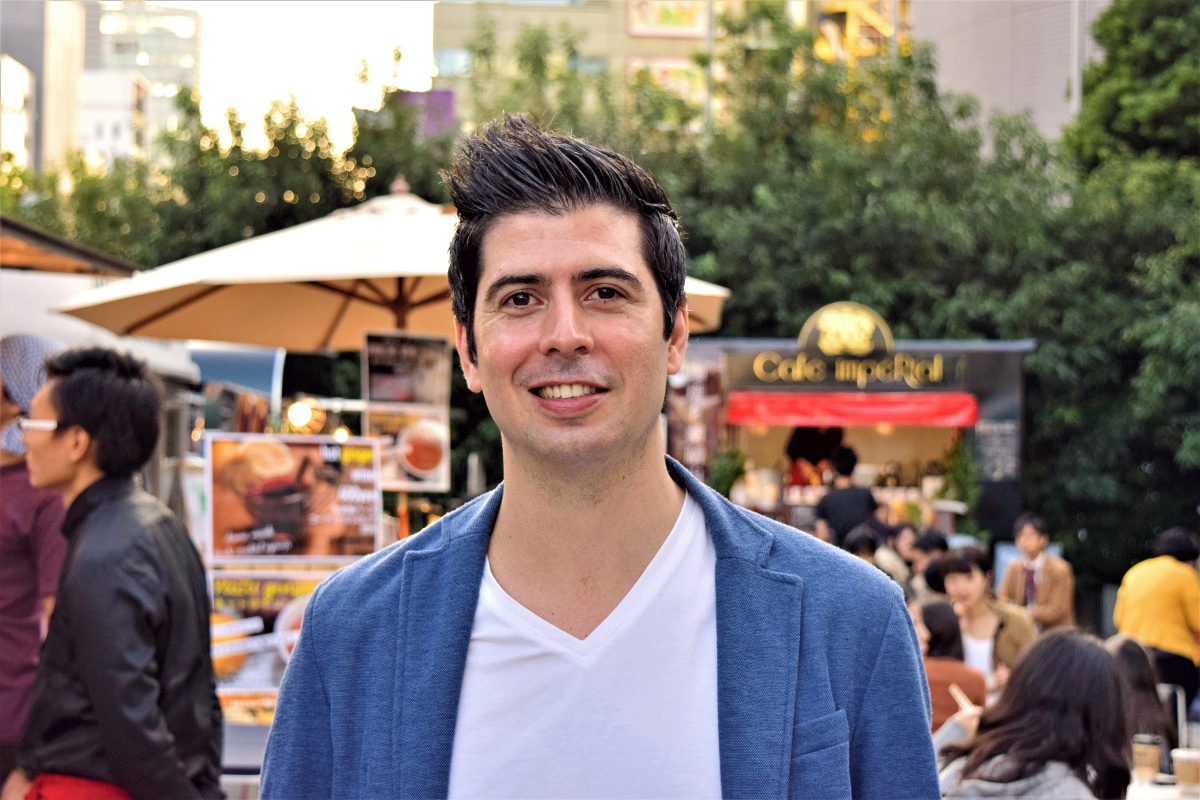“If we pay attention to ourselves, we already know what we want. We just forget it because we’re so caught up with work or too stuck in our comfort zones. Growing up as a 6-year-old in Portugal, I knew I wanted to set foot in Japan after seeing images of Himeji and Todaiji from a book about temples and castles around the world. As years went by, I got comfortable and ‘happy’ only to realize it didn’t make sense anymore. Having a stable job and a house didn’t complete the picture. So I tried to get back on track with my Japan plan. In 2013 I came to visit Japan for the first time and train in karate, which I’ve been doing since I was 10. Then just to be sure I wasn’t romanticizing this country too much, I came back the second time in 2014 to test the waters in Osaka and Tokyo. That’s when I decided to move here. But I faced many obstacles, mainly with myself. The problem is we always try to come up with the perfect plan. I thought, ‘maybe this was too big a move’ or that ‘my Japanese had to reach a certain level first’. But life is about moving. You need to move for things to happen. Otherwise they won’t on their own. So I let go of my fears and anxiety—like quitting my job of six years—and took the plunge. Now I’m a freelance graphic designer and illustrator in Tokyo and I’m glad I made that big jump. Finally, everything makes sense.”

High-context culture
“I’m twice the outsider in Japan; I’m a freelancer and a ‘gaijin’ (foreigner). So I don’t exactly belong to the company I do projects with because of the contractual nature of my work. And on top of that, I’m not Japanese. And you know there’s a sense of hierarchy in Japanese culture. You feel this, for example, when eating at a restaurant. The boss or guest sits farthest from the door, while the secretary or most junior member is positioned closest to the exit, so they can easily order or ask for the bill. Having been a karate practitioner has helped me understand the culture of respecting older or higher-ranking members. I’ve lived with those tenets for 23 years. Although I know I’m never going to be Japanese, I want to make them feel that I’m with them; that I’m one with them. Here in Japan, you can be anything but you need to respect the space of others. I’m inclined to accept things and try to understand. Like how putting your hands in your pocket while talking to someone or with a client in a business setting is seen as rude. Rather than losing my mind over ‘why’, I try to see things their way. After all, it’s easier to adjust by keeping your hands out of your pocket anyway. It’s all about adapting, just like what a famous TV personality once said: ‘Be water, my friend.’”
(Maru is an “illustrator by nature, designer by passion.” For more on his work, visit http://www.maru.pt)
